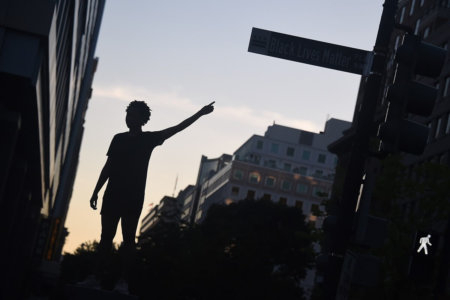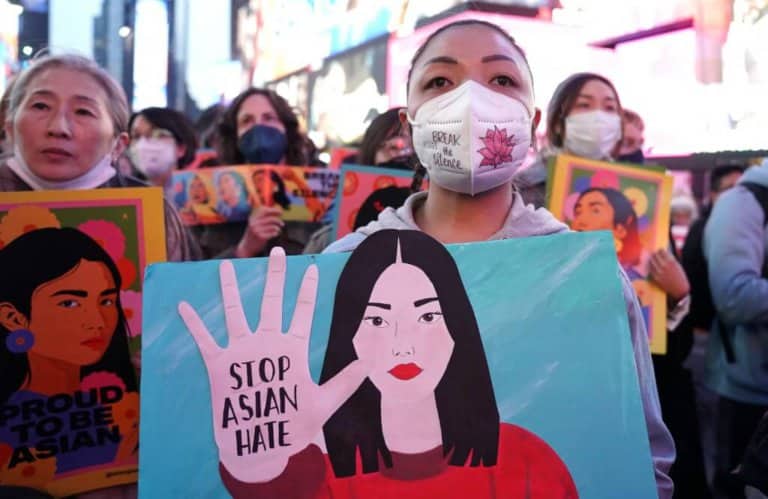
It’s easy to spot racist, bad words, slurs, and phrases, right? In the US, the answer is yes and no.
As an international student, you’ll not be exempt from the crass ways (and, let’s be honest here, the downright despicable approaches) of American life.
You may have gotten racist, bad words and phrases thrown at you, such as being told to go back to your home country or even slurs about what you look like. Perhaps your family also has been the target of bigotry and racism solely because of their skin colour or country of origin.
Even if you’ve graduated and decided to live and work in the country, or your family migrated over when you weren’t born yet, bad words and slurs will probably still come your way.
You may not have understood it at first, especially at a young age. But as you get older and learn about the concept of racism, you begin to understand it more clearly – and painfully, too.
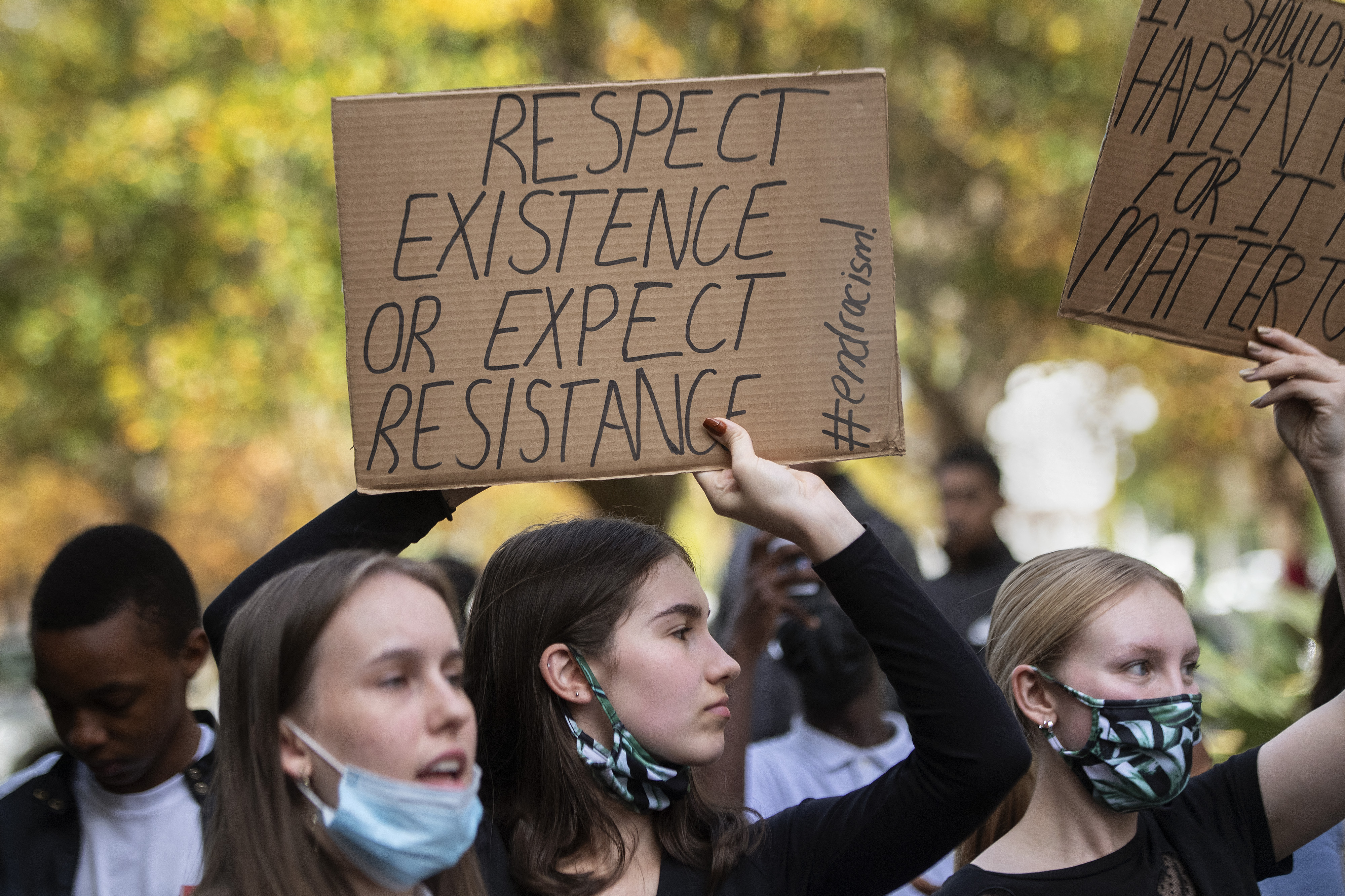
Students holding posters take part in a protest against racism at the University of Stellenbosch after a white student was filmed urinating on a black student’s books and laptop. Source: AFP
Navigating racism as an international student
While racism is prevalent in every part of the world, it is especially rooted in US society – hence the phrase “systemic or institutional racism.”
The term refers to the systems set in place that disproportionately affect non-whites, particularly African Americans, and put them at a disadvantage compared to white persons. Other races aren’t spared; Asians, Hispanics, Indians and other ethnicities also face hatred and violence on the daily.
Eight out of 10 African-Americans experience racism, while seven out of 10 also believe that discrimination prevents Black people from advancing in their careers.
58% of Asian adults in the US say they have experienced racial discrimination or unfair treatment due to their race or ethnicity.
It’s not hard to imagine that the US can be a nightmare to study or live in, especially when even former US president Donald Trump claims that “immigrants in Ohio are eating cats and dogs.”
It’s not just the US either.
The same report shows that countries like Germany and Austria have had the highest discrimination rates in the last five years.
Research from a joint report produced by the University of Manchester, the University of St Andrews, and King’s College London stated that more than a third of people from ethnic and religious minority groups in Britain have experienced some form of racially-motivated assault, such as physical, verbal or property damage – and happened in all areas of life including education, work and when looking for housing.
Why does this matter for an international student? These are things you have to be wary of, especially if you don’t have the “ideal” skin colour or facial features.
You need to know whether what’s being said to you is okay, and whether it’s right for you to use certain words you hear while studying overseas.
Even Americans get genuinely confused over whether certain words or terms are discriminatory, and it goes both ways – some international students may not know if what they are saying is okay or not. Is it a swear, or is it a slur, and who exactly does it affect?
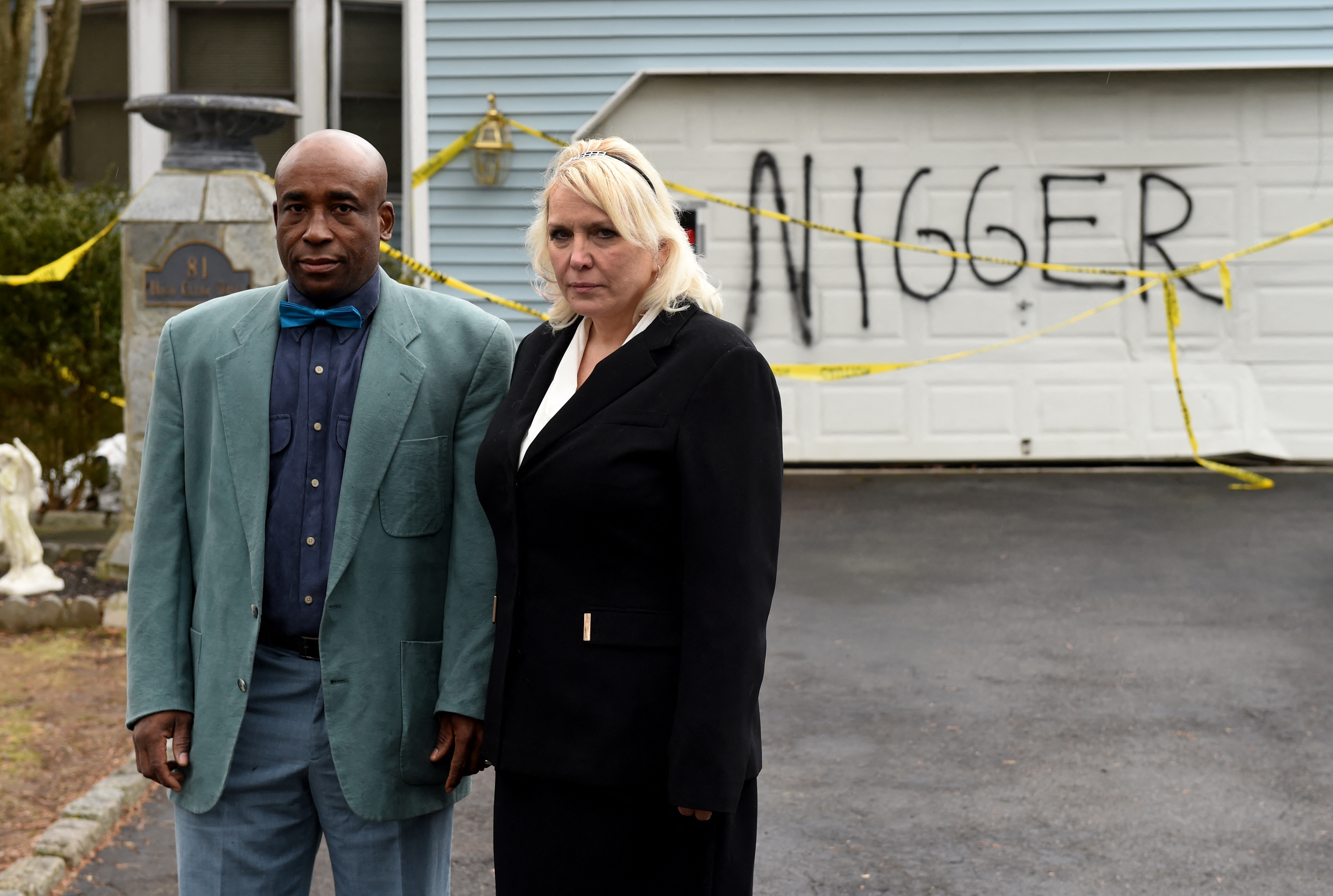
Even when married to a white partner, African-Americans still face discrimination and are targets for racially-motivated attacks. Source: AFP
Bad words and slurs to be aware of
What used to be deemed offensive could be common use now; the F-word really raised eyebrows in the 1970s, but it’s pretty much used or heard on a daily basis today. In fact, a study shows that people are estimated to use an average of 80-90 profanities a day.
But this doesn’t mean young people find nothing offensive. Specifically, they don’t like slurs.
On their own, profanities don’t mean much. But when used in the context of discrimination, racism, and bigotry, that’s another conversation altogether.
One Pew survey found that most Americans believe their country can’t agree over what is considered sexist (65%) or racist (61%) language; and about half (48%) say it is hard to know what other people might find offensive.
The challenge is greater still for international students like you, who are new to this country and its cultural nuances.
But what’s clear is that although you’re in a land that protects free speech, that doesn’t give you a pass to say anything you like, especially bad words that can hurt any race.
Here are some you should be wary of:
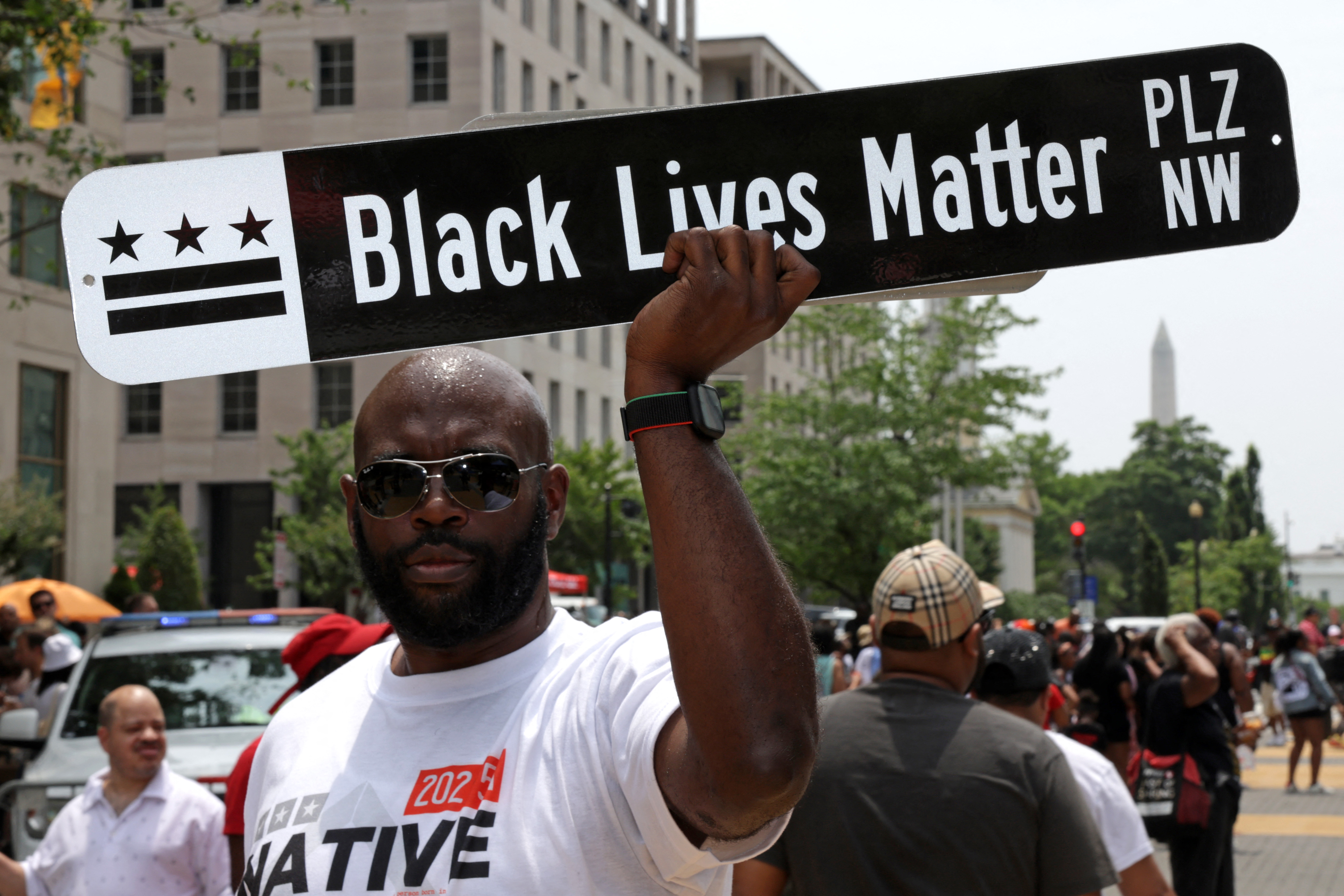
Black Lives Matter is a movement seeking to highlight racism, discrimination, and racial inequality experienced by black people and to promote anti-racism. Source: AFP
1. N-word
Rule #1 that everyone, not just international students, should know – if you’re not Black, the N-word is the racial slur you should never, ever say, or even consider saying. And no, even if your favourite artist’s song has the word, you shouldn’t sing it aloud either.
The word can be traced back in history to slavery when the first documented slaves arrived in the US. Africans were referred to using the Spanish and Portuguese words for black – negro.
“It’s really tied into the idea that African people aren’t really human beings,” says Kehinde Andrews, professor of black studies at Birmingham City University.
“They were more like an animal than a human being, a beast of burden, could be bought and sold, could be thrown overboard and literally had no rights. So when the N-word is used that’s essentially what it’s used for. So I would hope most people would understand why that is deeply offensive and problematic because it still is used in that context now.”
So why is it alright for Black folk to use the word?
Race expert Dr. Jacqui Stanford explains it perfectly: “Black people have successfully divested the N-word of its original offence and in our struggle to survive the devastation it occasions, gave it new meaning, made it approachable, survivable.”
“The word is being policed because Black folks did not have a choice in the matter at a certain time when it was used to their disadvantage, to abuse and to inscribe and reinforce the sense of black people as inferior by white people,” says Dr. Stanford. “That the word survives is an act of redemption by Black folk. The word survives on the conditions that Black folks have inscribed for it and nobody else can take that. And it becomes violent when other people try to take it and use it.”
Additionally, try to avoid using words like ape, monkey, and gorilla around people of colour.
The timeline is hazy, but offensive comparisons of Black people to apes date back hundreds of centuries. In the 1800s, scientists Josiah C. Nott and George R. Gliddon created “Types of Mankind,” where they compared black people not to other (white) people but to chimpanzees, gorillas, and orangutans.
2. Kike
Kike is an antisemitic ethnic slur for a Jewish person. It is a highly offensive term used to insult and denigrate people of Jewish faith or ethnicity, and is widely considered to be a form of hate speech.
There are multiple theories about the emergence of this term.
A popular theory suggests that it derived from the Yiddish word for circle (“kikel”). This refers to how the first Jewish immigrants signed their entry forms at Ellis Island with a circle as opposed to an “X,” which Jews associated with the cross of Christianity. Immigration officers described those who signed forms with a circle as “kikel,” eventually being shortened to “kike.”
Another theory involved groups of Jewish merchants, who travelled with their wares far and wide. As they couldn’t read or write English, they would check off payments from customers with a little circle rather than a cross.
While it is primarily used today by white supremacists as an anti-Jewish slur, it has also been used by public figures who are unfamiliar with its origins or meaning.
In 2021, NBA player Meyers Leonard, who was then a member of the Miami Heat, used the word while livestreaming “Call of Duty” on Twitch. Backlash was immediate – he was suspended by the team and fined by the league, then traded and released.
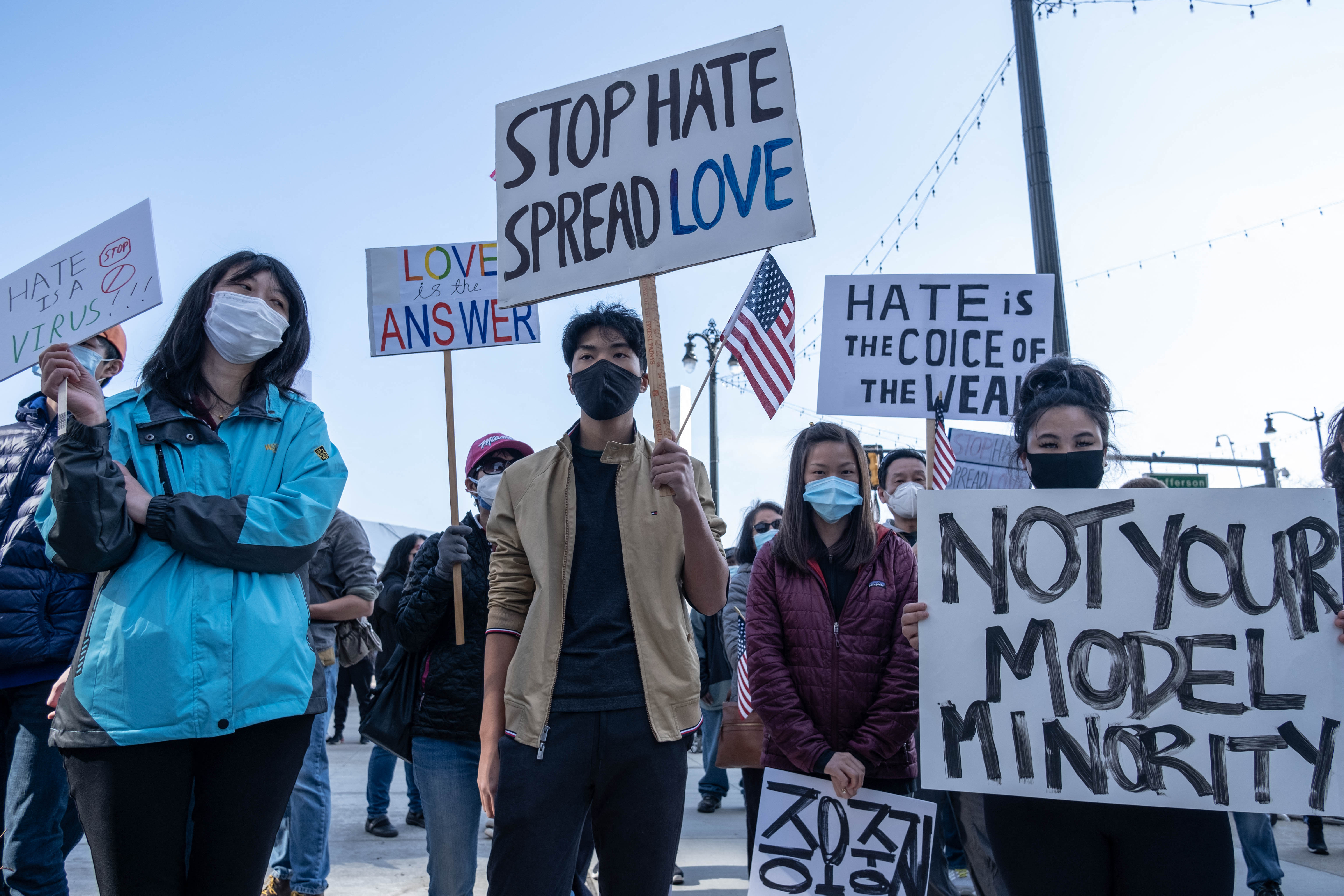
The Stop Asian Hate Movement was a nation wide protest in solidarity against hate crimes directed towards Asian Americans. Source: AFP
3. Chink
“Chink” is one of the bad words often used against any Asian-looking person. It’s a word that’s hard to ignore – you hear it in Migos’ “Get Right Witcha“, in sitcom “Fresh off the Boat,” and even in sports, when ESPN referred to basketball player Jeremy Lin as a “chink in the armour.” Yes, the latter meant exactly what you thought it meant.
Some say the word chink originated from the word “China”. Others say it came from the word “qing” (pronounced as “ching”), as in the Qing dynasty.
Arguably, its origins in the US may be innocent enough as a term to describe those who were of Asian descent, but it started taking on a derogatory meaning in the early 20th century; Chinese migrants were seen as a threat to the living standards of whites in North America, leading to the Chinese Exclusion Act. The law then banned the Chinese from migrating to the US.
While the US is the most inclusive it’s ever been today, Asian hate remains in some communities.
In 2021, Asian Americans, especially elders, faced discrimination as a result of the COVID-19 pandemic and its link to China. In that same year, eight people were killed in three Atlanta spas, six of whom were of Asian descent, and Vicha Ratanapakdee, an 84-year-old Thai man, died after being violently shoved to the ground as a result of targeted racism.
All this and more have prompted the rise of the Stop Asian Hate movement, which is still active today.
Disclaimer: This article was last updated on September 13, 2024.










